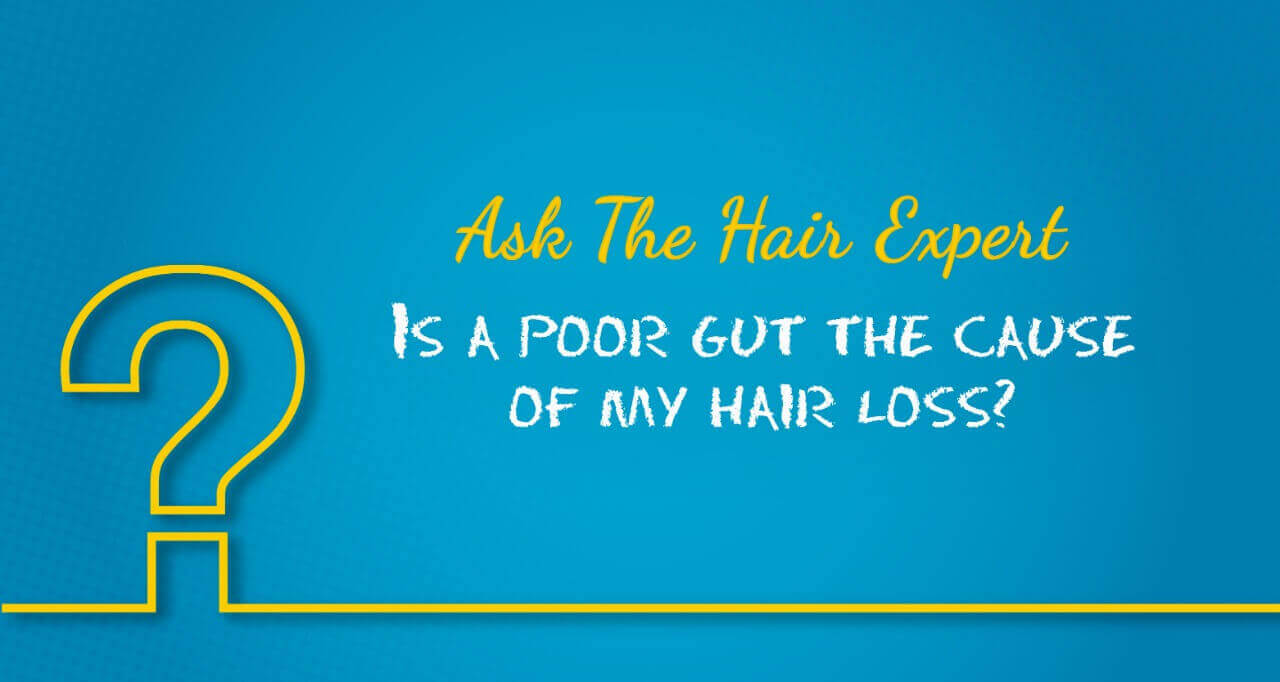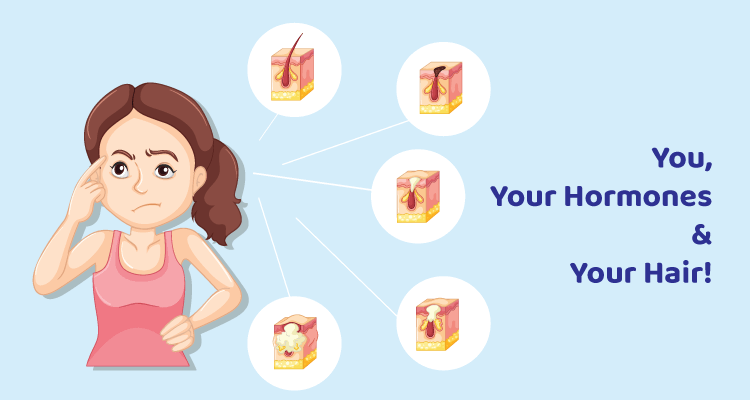If you look the term up, you will see that ‘Dysmorphia’, as a word, refers to any deformity in shape or size or characteristic of a specific body part. Dysmorphic Disorder or Dysmorphia refers to the perceived flaw about an aspect of oneself, in the mind, and being obsessed over that thought, causing severe mental stress. Hair Dysmorphia is a branch of Body Dysmorphic Disorder.
Strange-sounding term? Never heard of it? Or heard of it, but never understood what it means?
But clearly, it is not an alien subject, ‘cos some of you have written to us asking us about it!
So here we are, yet again, with the ‘Ask the Hair Expert’ series, to give you some answers and clarity.
You asked: “I spend hours trying to meticulously fix and style my hair every single day. Why do I still feel like am having a bad hair day, every day?! Do I have Hair Dysmorphia?”
Here’s the answer from the Hair Experts.
Understand what Hair Dysmorphia is and tackle it with professional help.
Get to the root of the problem with the help of a Trichologist!
So, let’s first understand what this condition actually is, what the common symptoms are, and then, move on to discuss how it can be tackled.
What is Body Dysmorphia?
Body dysmorphic disorder (BDD) or Body Dysmorphia is a pseudo-illness, characterised by an obsession about a perceived bodily flaw. It has been observed that individuals start off by presenting concerns about their hair or skin. The psychopathology is the perception that a flaw or imperfection exists. The person may be convinced that a part of their body or their hair is abnormal and imagine imperfections. Women are affected more commonly than men by body dysmorphic disorder, while both have a susceptibility to the condition. The age of onset is normally between 15 and 20 years.
Studies have shown that people suffering from this disorder spend roughly 3 to 4 hours a day attempting to correct or conceal flaws, that are in fact either dramatically exaggerated or entirely fictitious. But to the person undergoing it, it is very very real! It is depressing and triggers serious social phobia.
A very crucial point here is that such patients may be diagnosed with a different body dysmorphic disorder than what is originally conceived, mostly led by an excessive dislike towards their body which could include hair, nose, legs, arms, etc. Body dysmorphic order in women is mostly related to hair. And this leads us to the topic of Hair Dysmorphia.
What is Hair Dysmorphia or Hair Dysmorphic Disorder (HDD)?
Drawing further from the above definition of BDD…
If you are someone who spends way too long in front of the mirror, tugging at the hair and scalp in frustration, redoing your hair-do multiple times, and then still step out hiding your hair under a cap, scarf or duppatta…. You step out and check your hair every second minute. You have nightmares of losing your hair, of going bald and this thought sticks to your mind, refusing to go away….You are perhaps suffering from this very condition – Hair Dysmorphia.
Many experts say that this feeling of discontent stems from ‘wanting what I don’t have’, fuelled by the existing social set-up that’s high on social media flashing and societal expectations. No matter how great your hair is, if you still feel like you are having a bad hair day, then it is best to recognise it (denial won’t help) & address this concern with professional help. A medical diagnosis can make all the difference.
What are the causes & symptoms?
There is no established cause of body or hair dysmorphic disorder. It could be genetic. It could be a traumatic experience that has triggered it.
For instance, if you were bullied and teased about your hair and appearance brutally in college or school, it could have set off this perception in your mind that your hair and look is flawed. You start believing in what you were told by the bullies. This could have been the base trigger of Hair dysmorphia in you. This is just an example. Different instances and experiences stem from different sources…
There are no defined symptoms either. But we will list some probable symptoms that may help you decipher the subject.
- Excessively concerned and visibly preoccupied with the imagined defect in personal appearance; Reacts excessively even when there is only a slight physical anomaly.
- Unnecessary engagement in practices to correct the perceived flaw or at least hide it, like checking the mirror, spending too much time in grooming, etc.
- Making continuous attempts to cover up the perceived flaws with styling. Have curly hair – want it straightened; Have straight hair – want it curled. Never happy with hair-do.
- Preoccupied mindset that everyone around ‘is taking special notice of me’ and always, in a negative way.
- A tendency to compare appearance with others and are mostly seeking reassurance on it from others.
- Under severe emotional and visible social distress.
There are two segments of sufferers. One segment of people, who suffer the condition but aren’t aware that this is the specific issue that is causing all the stress. They believe the perceived thoughts and flaws to be the truth. There is another section of people who are mildly aware of the condition that they are undergoing or they know that something perhaps is just not right, that they do feel apart from rest of the crowd, but are in denial.
Either way, a deep, honest look inside and open talk with a trusted family member or friend, may help decipher it. What would really help put things in perspective is a consultation with a Trichologist. Someone who knows all about Hair and who will double up as a therapist for you.
Can HDD be treated?
HDD is very much a manageable, treatable condition. What it needs is first and foremost, self- acceptance, followed by accurate diagnosis, by the right professional.
If you believe that you are perhaps suffering from such a condition, firstly, don’t hide it from your trusted circle. Speak about it. Share your thoughts. If you do not wish to discuss it with your immediate circle and perhaps, prefer speaking to a third person, we would advise a quick walk in with a Trichologist. You are not going to be judged here for your thoughts and you need not have any shame or hesitance to open up about it.
If diagnosed with HDD, the treatment will include therapy, medications and specific treatments if there is indeed a hair & scalp problem to be addressed. Therapy would include detailed discussions and sessions to help re-build self-esteem & confidence.
Cognitive Behavioral Therapy (CBD) is also something that is often suggested under professional care. It is a type of psychotherapy wherein you are taught to manage negative thoughts and change your course of thinking. Uncontrolled anxiety and symptoms of depression are treated through CBD. There are professional therapists who offer this service.
Once the diagnosis is confirmed, what is the need of the hour is approaching the condition methodically and scientifically. This is where a professional steps in.
How can a Trichologist help with HDD?
The primary objective of the trichologist is to help you rest your mind about your appearance, and help you go back home feeling positive the way you are, and your appearance. Body dysmorphic disorder associated with hair and scalp appearance can be perfectly managed and handled. RichFeel, for instance, has been successfully curing body and hair dysmorphic disorder for many years now.
Trichologists work in treating visible hair disorders such as bald patches, by providing customised solutions. The experts work collaboratively with the patients in truly understanding their thoughts, their lifestyle, needs and accordingly recommend remedies. Depending on the exact condition of the hair loss pattern, for instance, the trichologist will recommend treatment for restoration & cure.
The trichologist will also prescribe amino acids, which are basically protein-aids, and work to control the stress-related body dysmorphic disorder.
Remember, each individual’s hair & scalp condition is different from the other. One solution doesn’t fit all! While one home remedy may work for your friend, it may not quite do the needful for you! While one style looks awesome on your friend, it needn’t necessarily suit you. An altogether different hairstyle may look remarkable on you! Remember, there is no one ‘right’ way of wearing your hair!
Making the best out of what you have is not always a compromise. That is just a perception! Break free from it.
We are here to advise the right hair care regimen that is suitable for your specific hair & scalp condition, and can solve all your hair worries! We are always here to listen to your concerns, help you understand the facts, advice & even demonstrate what is best for your hair, be it best practices for your hair, your diet or lifestyle.
So don’t hesitate. Don’t self-medicate or self-treat on hear-say. Don’t resort to off-the-shelf products & tricks. Don’t fret & fume over your hair. Seek professional advice. You don’t deserve this stress! Tackle the condition right and follow our tips on hair care to stay clear of hair worries and stress forever!
Don’t stress over your tresses! Leave it your Trichologist, your hair-care-partner!
And with that message, we sign off today! For more on hair & scalp concerns, and for all things ‘Hair’, do follow our blogs on hair loss, hair care, treatments & solutions, and interesting hair trivia!
Connect with us on social media on the links below. Do leave your questions & comments and we will address them all, just as we have done today!



